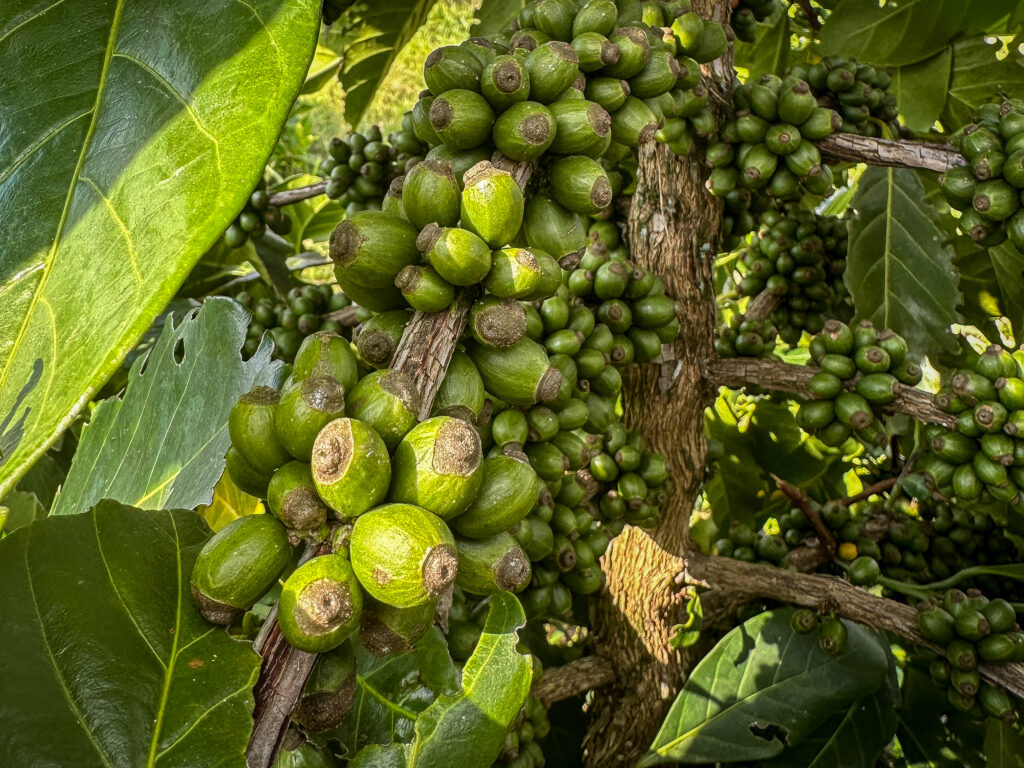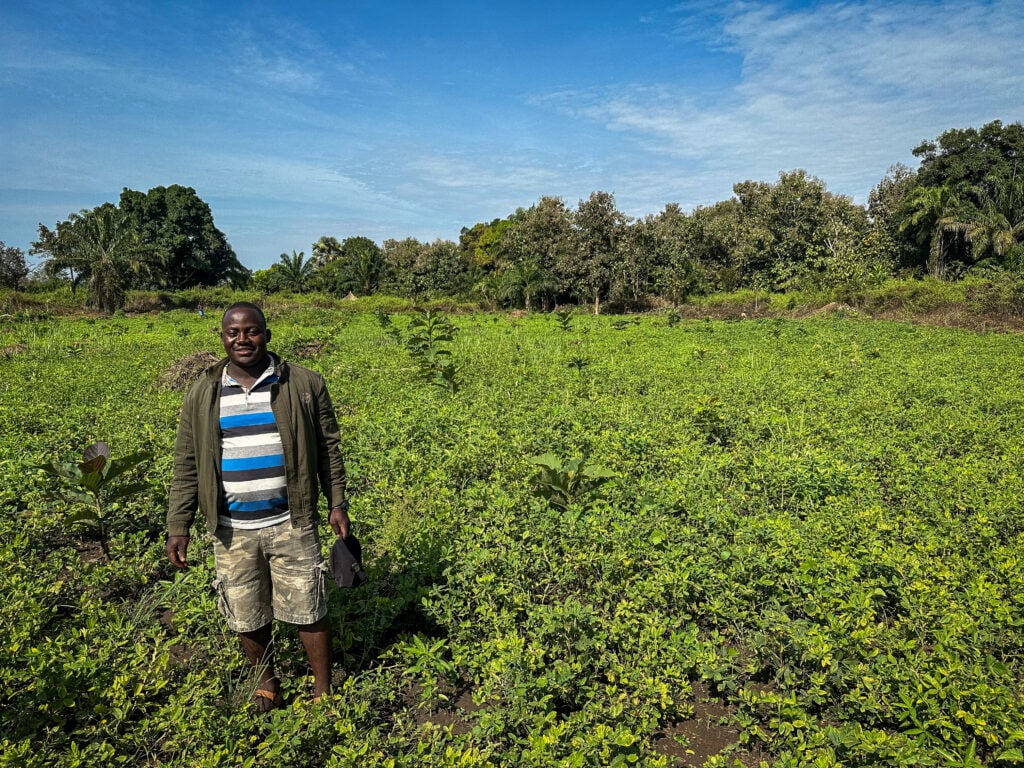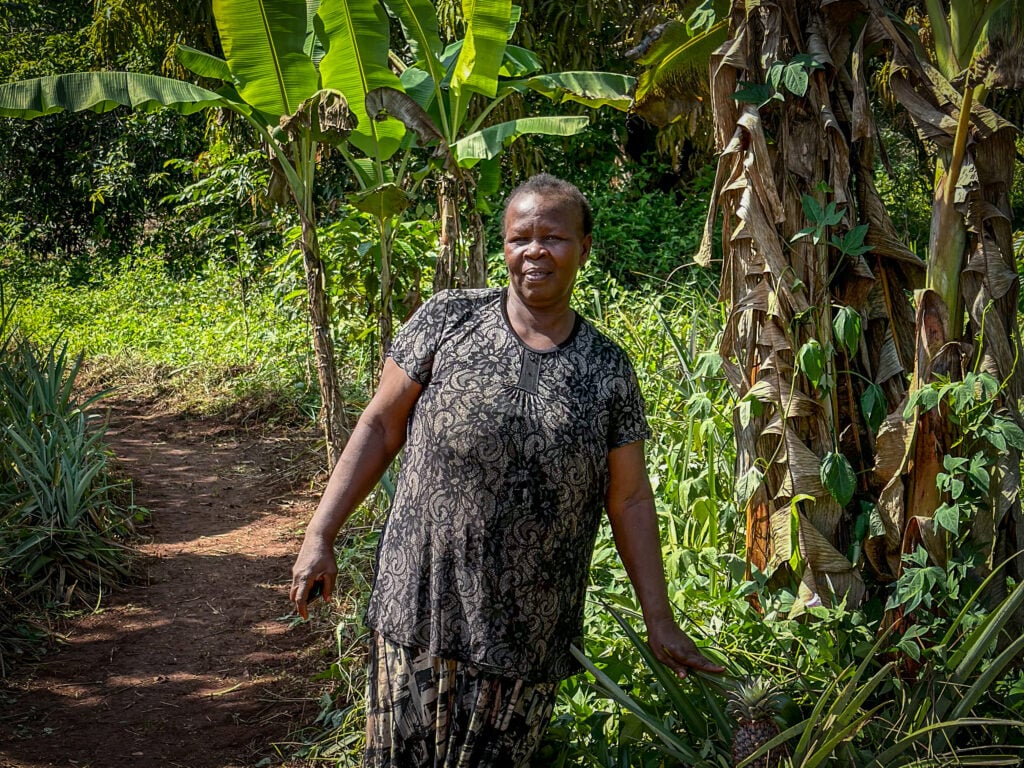In the South Sudanese counties Yambio and Nzara (Western Equatoria State), Cordaid is implementing the project ‘Excelling in Excelsa’ in a public-private partnership with Equatoria Teak Company (ETC), Hummingbird Action for Peace and Development (HAPD) and the Food and Agricultural Organization (FAO) of the United Nations.

Western Equatoria State is endowed with natural resources and more than 85% of the population is engaged in agriculture. However, the majority are subsistence farmers due to limited access to quality seeds, markets, farm inputs, post-harvest storage facilities and capital. Often, they are not in a position to access knowledge about improved farming techniques, water harvesting and irrigation methods and how to reduce post-harvest losses.
Value chain with most potential
Coffee used to be a major cash crop in this region. That changed at the start of the second Sudanese civil war in the 1980s, long before South Sudan gained independence in 2011. The coffee sector in Western Equatoria never really recovered. Coffee farms were abandoned, coffee plants were destroyed by wildfire.
Two years ago, the Excelling in Excelsa partnership, together with farmers in the region, re-introduced the coffee value chain in Yambio and Nzara. As coffee is a high-value and non-perishable crop, this was identified as the value chain with most potential. It opted for the Excelsa coffee variety, a little-known variety of the Liberica family which is native to South Sudan, but new to this part of the country.
“I joined the project for my children. This creates a better future for them, as they are the ones who will inherit the farm.”
The three-year coffee value chain project, which started in 2020, is committed to providing decent work and higher incomes for smallholder farmers and farm workers, especially women and youth.
Agroforestry intercropping: profitable and climate-smart
In the past two years, one thousand farmers have joined the ‘Excelling in Excelsa’ programme. With project support and training, they are now growing coffee on their farms, using agroforestry intercropping schemes with groundnuts, bananas, coffee and teak. This allows them to work on different levels at the same time. They increase food security in the short term by growing food crops. Given South Sudan’s acute food insecurity, this is crucially important. And they secure medium-term income from coffee, and long-term savings from teak.
On top of that, agroforestry intercropping (planting different crops in between trees) is also a climate-smart farming technique. It helps to counter land degradation and soil depletion.
To provide the best chance of success, farmers plant one-year-old coffee seedlings that were raised in Equatoria Teak’s nursery. ETC offers extension services to support farmers throughout the contract, both at the farmers and at their model farm.
Connecting farmers to the global market
Growing coffee, and turning it into a profitable business, takes time. It is expected that within five years the Excelsa coffee farmers will produce 400,000 kg of quality Excelsa. The farmers, who operate in cooperatives, have negotiated with ETC that it will buy their produce at fair prices directly, without any interference from middlemen. Thus, farmers in Yambio and Nzara are connected to the global billion-dollar coffee market. International buyers have already expressed interest.
Daphne van Dam, Cordaid’s private sector development expert at Global Office: “The Excelsa coffee that is being produced has a real potential for the global coffee market. It has a unique story, not only is it produced by mainly youth and women, it comes from an area of conflict. And it has the ability to produce prosperity where it is most needed.”
Breaking away from subsistence farming
And what do the key persons of Excelling in Excelsa say, the farmers in Yambio and Nzara?

“Our access to markets is very limited, as the lack of transportation and roads hampers our mobility. By partnering with ETC and Cordaid, we have found a guaranteed market”, said Alfred Seme, one of the farmers who participate in Excelling in Excelsa.
He also appreciated ETC’s insistence on fire prevention. “More than before, I take all possible wildfire prevention measures, like creating firelines and clearing the bush surrounding my land,” he adds.
Roi Daniel, another participating farmer, thinks even the next generation will somehow profit from her coffee adventure: “Through this project, I am able to break away from subsistence farming and create additional income. Although the coffee plants will take more time to start producing volumes, I joined the project for my children. This creates a better future for them, as they are the ones who will inherit the farm.”
Source of hope
Roi Daniel is one of the farmers Daphne van Dam met when she visited the project site last November.
“What impressed me most is that she, and all the others I spoke to, managed to shift their subsistence farm into a farming business with a short-, medium- and long-term vision. In a country battling with climate change and conflict, always figuring at the bottom of poverty and instability indexes, this is a source of inspiration and hope”, Daphne says.

We know conflict has badly affected the coffee sector in the past. Unfortunately, conflict is ongoing in South Sudan. Thorough contextual analyses, including conflict and insecurity monitoring, are part of any humanitarian or development activity in the country. Also in Excelling in Excelsa. We can say that the Nzara and Yambio region is relatively safe compared to other parts of the country. And investing in a region’s rural economy and people’s livelihoods is one way, not the only one, of investing in its prosperity and stability.
Funded by the Dutch Ministry of Foreign Affairs
Excelling in Excelsa is funded by the Dutch Ministry of Foreign Affairs (MoFA) through The Netherlands Enterprise Agency (RVO). Cordaid is the lead applicant and is responsible for project management (including monitoring and evaluation) and the development of training materials for the extension officers and key farmers.
Read more about Cordaid in South Sudan. Or about our Sustainable Livelihoods programmes